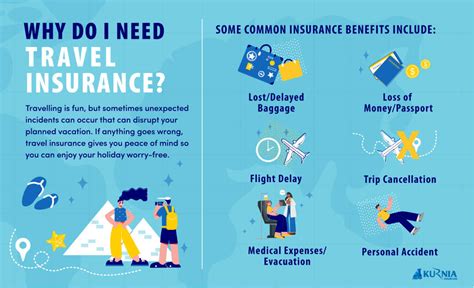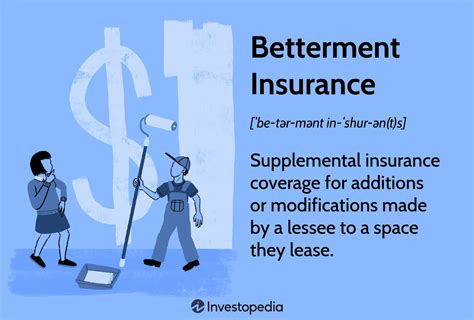Get a comprehensive understanding of employer’s liability insurance, its importance, legal requirements, coverage types, costs, and considerations. Ensure your business is protected.
Understanding Employer’s Liability Insurance
Contents
Understanding Employer’s Liability Insurance
Employer’s Liability Insurance is a type of insurance that provides coverage to employers for employee injuries and illnesses that occur as a result of their work. This insurance is essential for protecting both the employer and the employee in the event of a workplace accident.
One of the key aspects of Employer’s Liability Insurance is that it provides coverage for legal costs and compensation payments that may arise from an employee’s claim for work-related injury or illness. Without this insurance, employers may face financial hardships due to such claims, and employees may struggle to receive the compensation they deserve.
It’s important for employers to understand that Employer’s Liability Insurance is not only a benefit for the employee, but also a legal requirement in many countries. This type of insurance is mandated by law to ensure that employees are protected and fairly compensated in the event of a workplace accident.
When obtaining Employer’s Liability Insurance, it’s crucial for employers to carefully consider the types of coverage offered. Some policies may include coverage for specific types of injuries or illnesses, while others may offer broader protection. It’s important for employers to review the details of the coverage provided to ensure that it meets the specific needs of their business and employees.
In addition to considering the types of coverage offered, employers should also take into account the cost and considerations associated with Employer’s Liability Insurance. Factors such as the size of the business, the nature of the work performed, and the number of employees can all impact the cost of insurance. It’s important for employers to evaluate these factors and seek guidance from insurance professionals to make informed decisions about obtaining the right coverage.
Importance of Having Employer’s Liability Insurance
Having Employer’s Liability Insurance is crucial for any business, regardless of its size or industry. This type of insurance provides protection for employers against claims from employees who have suffered work-related injuries or illnesses. Without this coverage, a business may be held financially responsible for the medical expenses, lost wages, and other costs associated with such claims. This can have a significant impact on a company’s financial stability and reputation.
Furthermore, having Employer’s Liability Insurance is a legal requirement in many countries. Failing to comply with this regulation can result in heavy fines and penalties, as well as potential legal action from employees. By having the proper insurance in place, a business can avoid these risks and ensure compliance with the law.
Another important reason for having Employer’s Liability Insurance is the peace of mind it provides. Knowing that the business is protected against potential claims and lawsuits gives employers and employees alike a sense of security. This can also improve employee morale and productivity, as they know that their well-being is a priority for the company.
In addition, Employer’s Liability Insurance can provide coverage for legal fees and defense costs in the event of a lawsuit. This can be a significant financial burden for a business, especially if the claim is substantial. Having the right insurance can help mitigate these costs and protect the company’s bottom line.
Legal Requirements for Employer’s Liability Insurance
Employer’s liability insurance is a crucial part of risk management for any business. It serves to protect both the employer and the employees in case of workplace injuries or illnesses. However, in many countries, having employer’s liability insurance is not just a good idea, it is a legal requirement.
In the United Kingdom, for example, it is mandatory for businesses to have employer’s liability insurance if they employ one or more people. The law requires that the policy covers at least £5 million and comes from an authorized insurer. Failure to have this insurance in place can result in severe penalties and fines, with daily fines increasing for each day that the insurance is not in place.
In the United States, the requirements for employer’s liability insurance vary from state to state. Some states, such as Texas, do not require it at all, while others, like New York, mandate it for all businesses with employees. Similarly, the coverage amount and specific legal requirements differ from state to state.
It is important for business owners to be aware of the legal requirements for employer’s liability insurance in the jurisdiction where they operate. Failure to comply with these requirements can have serious consequences, including financial penalties and legal repercussions.
Types of Coverage Offered by Employer’s Liability Insurance
Types of Coverage Offered by Employer’s Liability Insurance
Employer’s Liability Insurance provides coverage for businesses in case an employee gets injured or becomes ill while on the job. There are different types of coverage offered by this type of insurance to protect both the employer and the employee.
One type of coverage offered by employer’s liability insurance is bodily injury coverage. This coverage protects the employer in case an employee suffers from a physical injury while working. It helps cover medical expenses, rehabilitation costs, and lost wages for the injured employee.
Another type of coverage is occupational disease coverage. This provides protection for employees who develop an illness due to their work environment. It covers medical expenses, loss of income, and provides compensation for permanent disabilities caused by occupational diseases.
Employer’s liability insurance also offers legal expense coverage. This helps cover legal costs in case an employee files a lawsuit against the employer for injuries sustained on the job. The policy may cover attorney fees, court costs, and settlements or judgments.
In addition to these coverages, employer’s liability insurance may also include employer’s liability coverage. This coverage protects the employer against claims made by employees for work-related injuries or illnesses that are not covered by workers’ compensation. It provides coverage for legal defense costs and compensation for any judgment or settlement.
Cost and Considerations for Employer’s Liability Insurance
When it comes to employer’s liability insurance, cost is an important factor to consider. The cost of this type of insurance can vary depending on a number of different factors, such as the size of your business, the industry you operate in, and the level of coverage you require. Before purchasing a policy, it’s important to carefully consider your budget and how much you are willing to invest in protecting your business and employees.
Another important consideration when it comes to employer’s liability insurance is the level of coverage it offers. Different policies will offer different levels of protection, and it’s important to carefully review the details of each policy to ensure that you are getting the coverage you need. Some policies may also offer additional benefits, such as legal support or assistance with health and safety regulations, so it’s important to consider what additional benefits may be included in the cost of the policy.
Before purchasing employer’s liability insurance, it’s also important to consider the potential cost of not having this type of coverage. Without employer’s liability insurance, your business could be at risk of facing costly legal claims if an employee is injured or becomes ill as a result of their work. In such cases, the cost of legal fees and compensation could be significantly higher than the cost of purchasing an insurance policy, making it a worthwhile investment for your business.
In addition to the cost of the policy itself, it’s also important to consider any additional costs associated with employer’s liability insurance, such as deductibles or co-pays. These additional costs can impact the overall affordability of the policy, so it’s important to carefully review the details of the policy to understand what additional costs may be involved.













